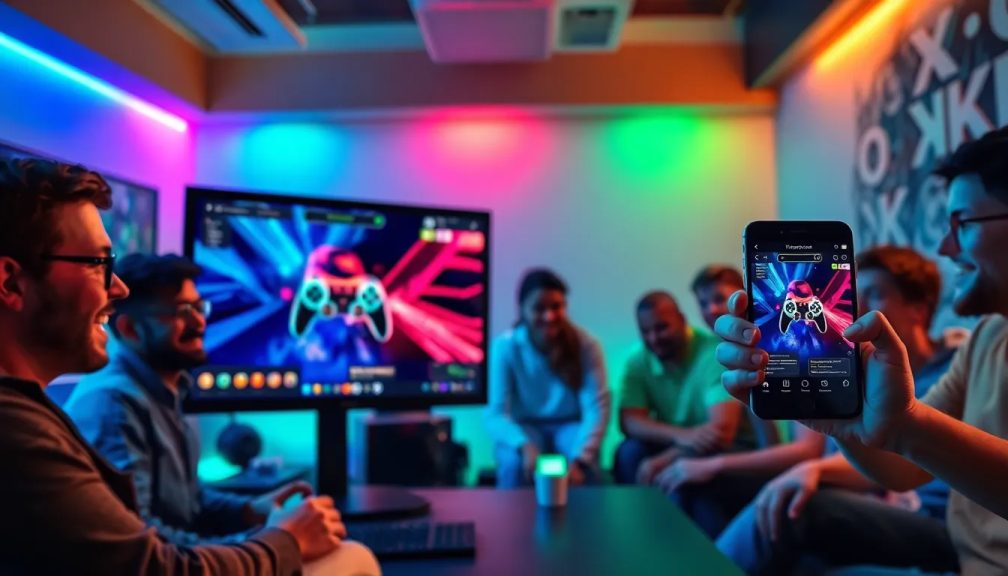Xbox Copilot beta launches on PC and is coming to mobile

As the digital landscape evolves, the integration of artificial intelligence into gaming experiences becomes increasingly evident. Xbox is at the forefront of this transformation, fundamentally changing how players interact with their games. The introduction of intelligent companions not only enhances gameplay but also raises questions about our dependence on technology. What does it mean to have an AI assistant in our gaming sessions, and how will it reshape our relationship with video games?
XBOX COPILOT: A NEW ERA OF GAMING ASSISTANCE
Recently, Xbox unveiled its latest innovation: Gaming Copilot, a tool that is currently in beta and available on PC through the Game Bar. This feature allows players to summon an AI companion during gameplay, enabling them to ask questions, seek advice, and receive context-sensitive help without pausing the action. This seamless integration means that what once took time to search for in forums or video guides can now be done in real time.
In addition to its PC launch, Gaming Copilot is set to debut in the Xbox mobile app next month, allowing players to utilize their phones as a second screen while keeping their gaming flow uninterrupted. This dual-platform functionality exemplifies the evolving nature of gaming, where the lines between devices blur.
Real-Time Adaptability and Personalized Experiences
What sets Gaming Copilot apart from standard gaming assistants is its remarkable adaptability. It offers a voice mode, allowing players to inquire about enemies, character backstories, or strategies while maintaining focus on the screen. This feature is invaluable for enhancing immersion and ensuring that assistance is available precisely when needed, including:
- Information on enemy weaknesses and strategies.
- Historical context for in-game characters.
- Real-time gameplay tips based on current challenges.
Moreover, Gaming Copilot tracks player achievements and history, providing tailored recommendations for new titles based on their preferences. This creates a personalized gaming experience that evolves alongside the player, making it feel less like a mere tool and more like a companion on their gaming journey.
A Progressive Journey Toward Global Availability
This development does not come as a surprise. In March, Microsoft introduced this concept as a pilot project, with a gradual rollout planned. By May, the tool was expanded to mobile devices in select markets, including the U.S., Japan, and Australia. Now, with its launch on PC, Microsoft aims to reach a broader audience while ensuring that Copilot remains accessible to any user over 18, evolving based on direct player feedback.
Looking ahead, Copilot is set for further expansion, with plans to integrate it into Xbox consoles and portable devices like the ROG Ally. The goal is to ensure that Copilot is not just an occasional accessory but a constant companion for players, enhancing their experiences across various platforms.
Comparative Analysis with Other AI Tools
Microsoft is not alone in exploring the potential of AI in gaming. NVIDIA's Project G-Assist has emerged as a noteworthy competitor, operating locally on machines equipped with RTX graphics cards. This assistant not only optimizes graphical settings and updates drivers but also provides gaming-specific advice based on the current screen context. Its functionality includes:
- Real-time in-game advice.
- Technical optimizations for better performance.
- Enhanced control over gaming environments.
What began as a technical demonstration at Computex 2024 has evolved into a robust tool tested with demanding titles like ARK Survival Ascended. G-Assist not only integrates voice and text commands but also operates independently of the cloud, ensuring that users do not require additional subscriptions or internet connectivity for optimal performance.
Understanding the Different Approaches to AI Assistance
When comparing Gaming Copilot with Project G-Assist, distinct differences emerge. Gaming Copilot focuses on providing continuous support and personalization through cloud integration, making it ideal for players seeking assistance throughout their sessions. In contrast, Project G-Assist appeals to those who prefer local control and technical support, offering a more hands-on approach to managing their gaming environment.
This diversity in AI solutions underscores a broader challenge in the gaming industry: how to incorporate artificial intelligence in a manner that enhances the player experience without becoming intrusive. The balance struck between utility and user autonomy will likely determine the long-term success of these innovations.
The Future of Gaming with AI
As we stand on the brink of a new era in gaming, the role of AI assistants like Gaming Copilot and Project G-Assist will undoubtedly reshape how players engage with their games. We are entering a phase where the technology not only supports gameplay but also enhances it, fostering a deeper connection between players and their gaming experiences.
While it remains to be seen how widely adopted these tools will become, their emergence signals a shift in our interactions with video games. Players are no longer just tackling challenges presented by games; they are also navigating the vast possibilities offered by technology to enrich those challenges.
Ultimately, the key will not lie solely in what AI can accomplish but in how much players are willing to allow it to assist them. As we embrace these advancements, we must carefully consider the implications of this evolving relationship with technology.
For a deeper understanding of Microsoft's initiatives with Gaming Copilot, check out this informative video:




Leave a Reply